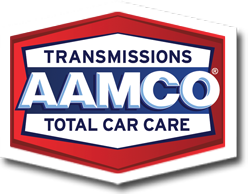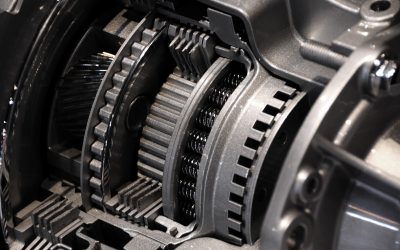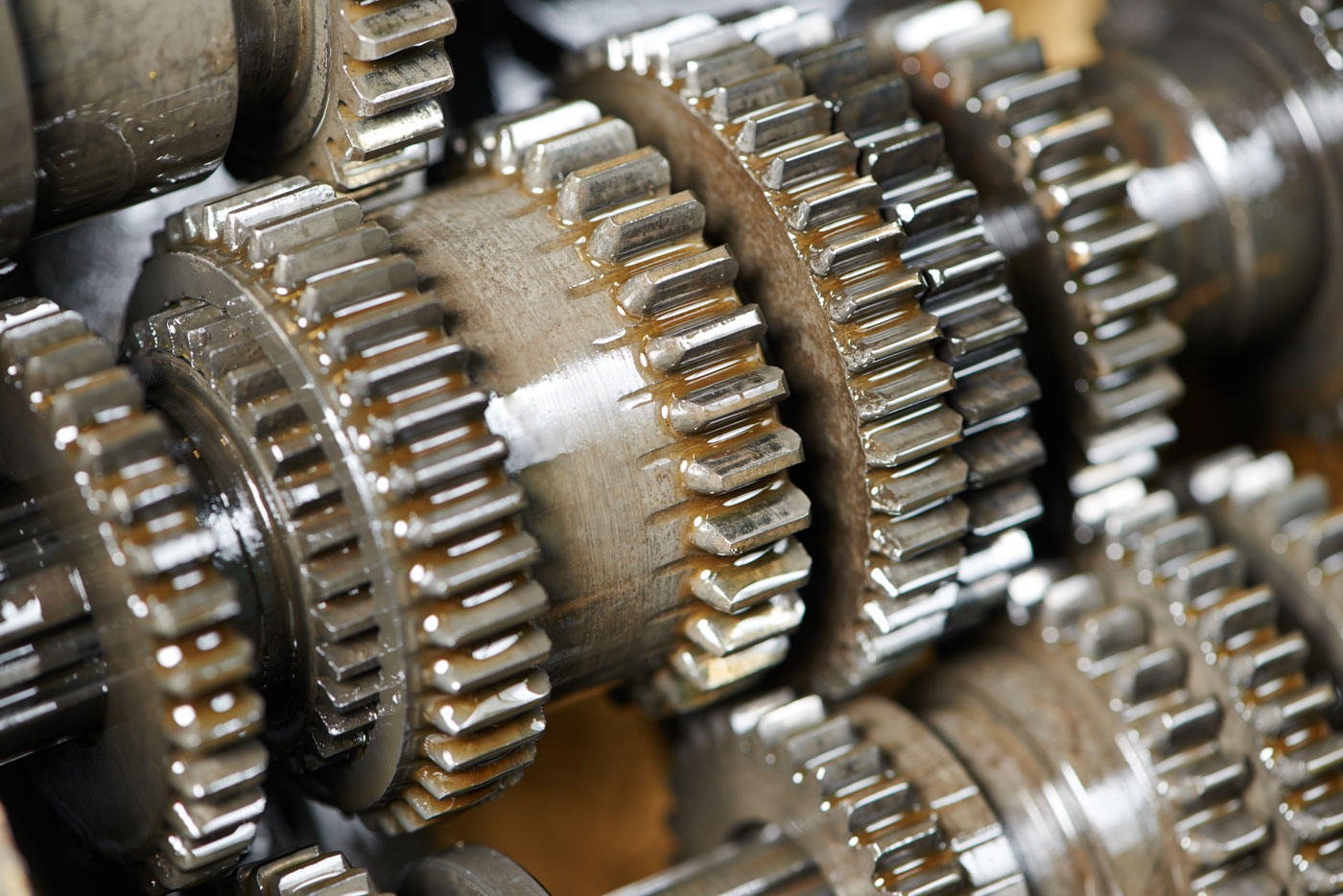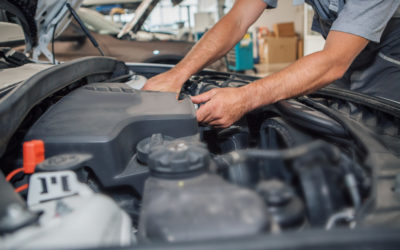Is Your Car Vibrating?
Feeling vibration while driving your car can point to several potential problems. Some are simple fixes, while others may be more serious. Either way, if your car is vibrating, you should get your car to a trusted mechanic like AAMCO Louisville KY for proper diagnosis and to take care of any necessary transmission repair or differential repair services.
Related Article: Top 5 Car Repairs You Could Need Now
Don’t Let Small Car Issues Become Big Car Issues
Bring your vehicle in to AAMCO Louisville today!
Our transmission and total car care experts fix it right the first time… Learn More »
Top Causes of Vibrating in Cars
If you like going into an auto repair appointment informed, here are some potential causes of a car vibrating and things to look out for to potentially help identify which problem you have.
Tires & Alignment
Your tires and tire balance will be the first place a mechanic will check because it’s the most common and simple cause. If your tires are out of alignment, you’ll notice issues with steering and your car may vibrate when driving. This vibration will be fairly constant and consistent when driving, meaning it won’t fluctuate too much when you accelerate, brake, or turn your car.
Brakes & Rotors
Another possibility is over-worn or warped rotors. You’ll notice this vibration when you brake and it’s caused by bad contact between brake pads and rotors. This won’t be a general vibration; you should only notice it in your brake pedal or possibly steering wheel.
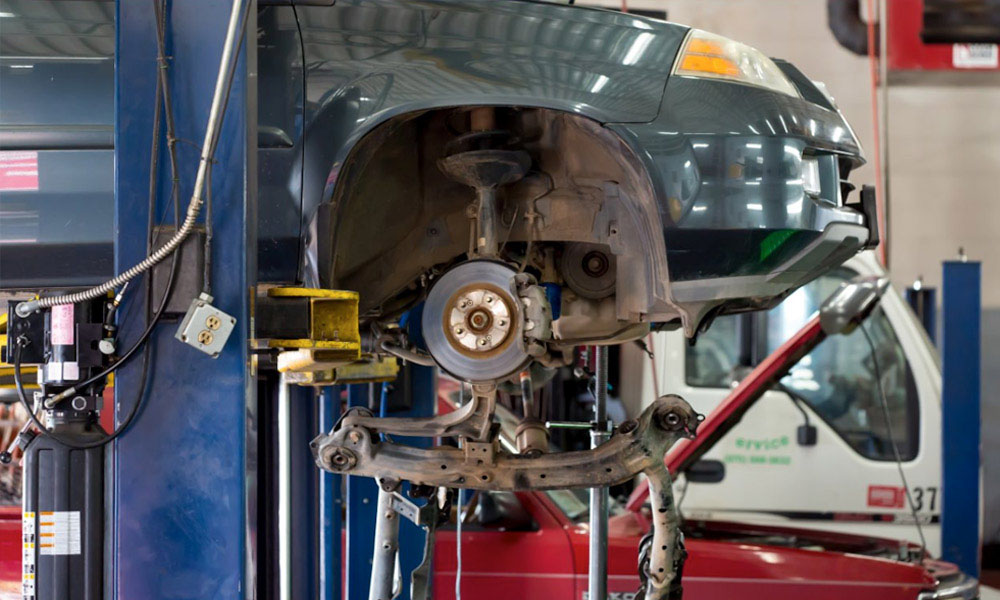
Problems with Your Transmission
This will cause vibration whenever the engine is running, not only when you are driving. Typically, this will indicate a bad transmission mount or a broken fan, depending on your car. Most cars have fans that only run when your engine temperature is high enough, so you will only notice the vibration at that point. If you suspect the vibration is due to a necessary transmission repair, don’t hesitate to make an appointment with a mechanic.
Related Article: Common Transmission Problems
Parts of Your Drivetrain
The next place to look when you feel your car vibrating is your drivetrain. There are a few different parts that can cause this problem.
A Worn-Out U-Joint
Within your drivetrain, U-joints connect the transmission and differentials to the driveshaft. They’re typically secured by needle bearings that will wear out over time, especially if they are under-lubricated. When the needle bearings holding the U-joint in place wear out, the ends will bounce around, causing vibration. This car vibration will be most pronounced when first accelerating or braking and can also indicate a problem with your differentials.
A Bent or Out of Balance Driveshaft
When a driveshaft is installed, it will also be balanced to ensure it’s correctly oriented with the connecting parts of the drivetrain, such as U-joints. This is typically thought of as a one-time service but the weight can get thrown off over time, especially if your car is over thirty years old. If your car is older, you may need to get your car’s driveshaft re-balanced if you’re experiencing vibration when driving.
If you have a two-piece driveshaft, installing a new center bearing can also throw off the balance of your driveshaft and cause vibration. The center bearing connects the two parts of your driveshaft and it’s possible there was a shift in the orientation of the two driveshaft parts during installation.
Problems with Differentials & Differential Oil
Long story short, if you have a problem with one or more of your differentials, it can snowball into problems with other parts of your car. If you have either of the above problems with your drivetrain, it’s likely you need to get a differential repair done as well. And if you’re noticing a rumble or whine in addition to the vibration, definitely get your differentials checked.
Just like your engine and transmission, your differentials have oil that lubricates inner parts. When that oil level is low or the oil has become too dirty and contaminated, it will cause extra wear on the parts within the differential. This will lead to whining within the differential and can also cause more strain on connected parts, such as U-joints, that could potentially lead to vibration.
If you have a Limited Slip Differential (LSD), putting the incorrect fluid inside can cause vibration in addition to damage within the differential. So if you’ve recently had your differential serviced, make sure the correct fluid was used.
Trust AAMCO Louisville Transmission Experts
Noticing any of these problems with your car? Don’t hesitate to get your car to a reliable mechanic to get it properly diagnosed. Our knowledgeable mechanics at AAMCO Louisville are trained to carry out any necessary transmission repair, differential repair, or any other auto repair your car requires.
Always Ask Your Louisville Transmission Mechanic These 2 Questions
A healthy transmission starts with the relationship between the driver and the mechanic. Having a trusted mechanic to turn to with questions and problems can make a world of difference in the health and lifespan of your car’s transmission. In particular, there are a...
read moreGet Better Transmission Life with These 3 Steps
A healthy transmission means a better driving experience and a longer lifespan for your vehicle. Transmission repairs can be some of the most expensive, so not only will extending the life of your car’s transmission leads to a better driving experience, but it’s also...
read moreAAMCO Proudly Provides Louisville’s Top Tune Up Service
A happy engine is a happy driver. As a car owner, you may wonder how you can help keep your car in healthy condition as long as possible – especially the engine. The key to a healthy vehicle and a longer lifespan is regular maintenance. When it comes to a healthy...
read more